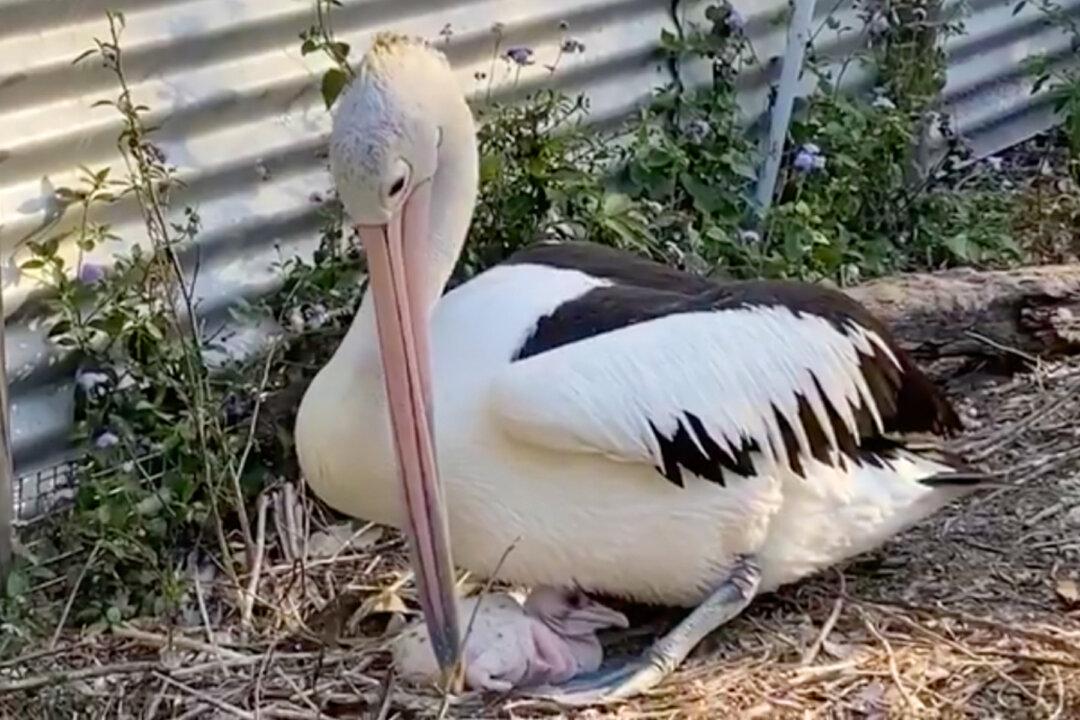For six long years, a rescued pelican and his partner tried in vain to hatch eggs. Now, after a little help from Twinnies Pelican and Seabird Rescue in Queensland, Australia, Mr. Percival and his mate are finally celebrating parenthood for the first time.
“Mr. Percival has never given up trying to have a baby pelican chick,” the rescue organization, run by twin sisters Paula and Bridgette Powers, wrote on Facebook. “We felt so sorry for him,” they added, “so we did this amazing thing for him as we wanted to make him really happy this time.”





